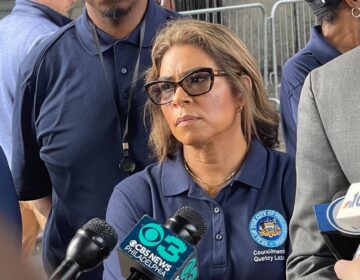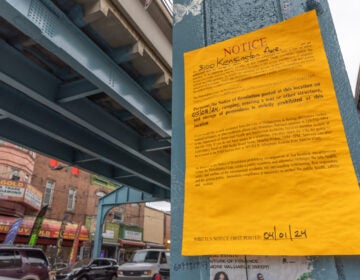Effort to clear out some Philly homeless encampments drawing to a close
This time next week, Philadelphia police will officially shut down half of the homeless encampments in Kensington, ground zero of the city’s opioid epidemic.
-
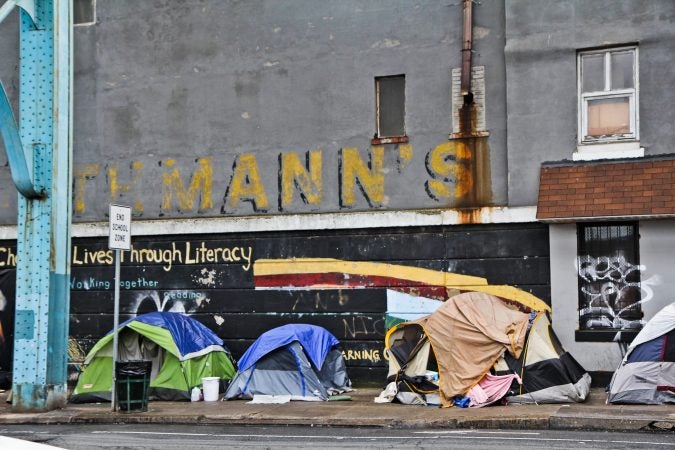
People living at the encampment at Kensington Avenue. (Kimberly Paynter/WHYY)
-
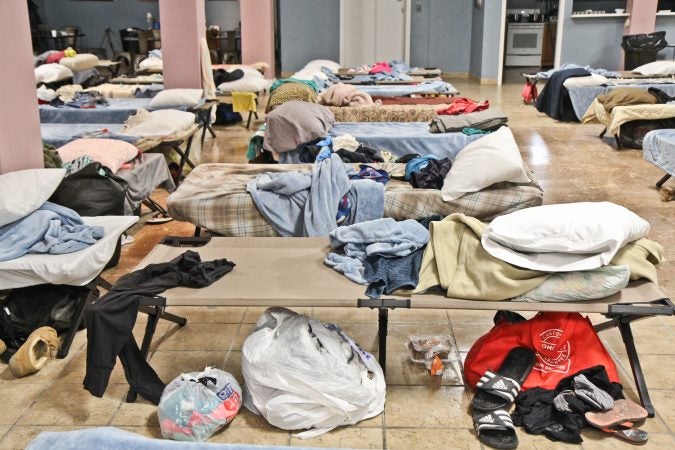
The shelter at Kensington Avenue and Willard Street opens at 6 p.m. daily. (Kimberly Paynter/WHYY)
-
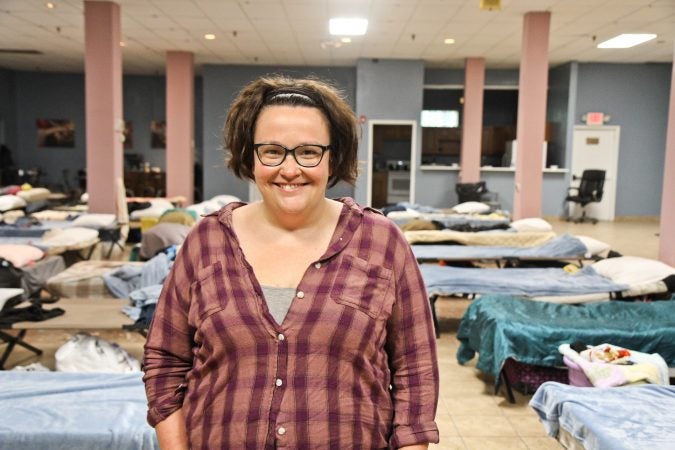
Kate Perch is the housing coordinator at Prevention Point. (Kimberly Paynter/WHYY)
This time next week, Philadelphia police will officially shut down half of the homeless encampments in Kensington, ground zero of the city’s opioid epidemic.
The move will close out a monthlong pilot program that has offered shelter and drug treatment to dozens of people living in tents and makeshift structures beneath two railroad bridges just north of Lehigh Avenue, not far from the gentrifying sections of the neighborhood.
One of the encampments is on Kensington Avenue; the other is on Tulip Street.
“We’ve had some tremendous successes,” Liz Hersh, director of the city’s Office of Homeless Services, said of the program, which has involved several agencies and dozens of city employees.
To date, about 100 people have come in off the streets – roughly half of the homeless population the city estimated was living in four encampments in the neighborhood, including the camps on Kensington Avenue and Tulip Street.
Thanks to the program, a lot of people are now staying in one of three respite centers – low-barrier shelters that don’t require people to have an ID or stop using drugs. They just can’t shoot up inside the centers.
For about two weeks, Ryan Forrest has been sleeping at one of the respite centers run by Prevention Point, a nonprofit that also operates a free needle-exchange program. The 28-year-old spent the previous seven months living under the train bridge on Kensington Avenue.
“There were people down here that I hung out on the street [and] that I felt comfortable with. I came down here a couple nights and just never left,” Forrest said.
He’s thankful he got a slot in one of the shelters, which have just 40 beds each.
“You’re actually treated like an adult, not a child. Most shelters, they want you to be in at a certain time and then once you’re in, you can’t leave,” said Forrest.
The centers — two in Kensington, one at 24th and Lehigh in North Philly — also have case managers standing by if and when people decide they want to stop using drugs. So far, city officials say about 40 residents from the Kensington encampments have started the recovery process.
For now, Forrest isn’t one of them.
Kate Perch, housing coordinator at Prevention Point, said sleeping indoors can serve as a steppingstone for turning things around.
“When people have a stable space to sleep in every night, when people know that their belongings are safe, their person is safe, it’s a lot easier to engage in some of those more difficult conversations. About things like treatment and housing,” said Perch.
The city wants to close the rest of the homeless encampments in the neighborhood on Frankford Avenue and Emerald Street, but Hersh said it’s unclear when that may happen. City officials will regroup after the pilot program ends May 30 to determine next steps, including what resources are available going forward.
The pilot program only used existing city funds.
It’s estimated that Philadelphia recorded more than 1,200 overdose deaths in 2017.
WHYY is your source for fact-based, in-depth journalism and information. As a nonprofit organization, we rely on financial support from readers like you. Please give today.



